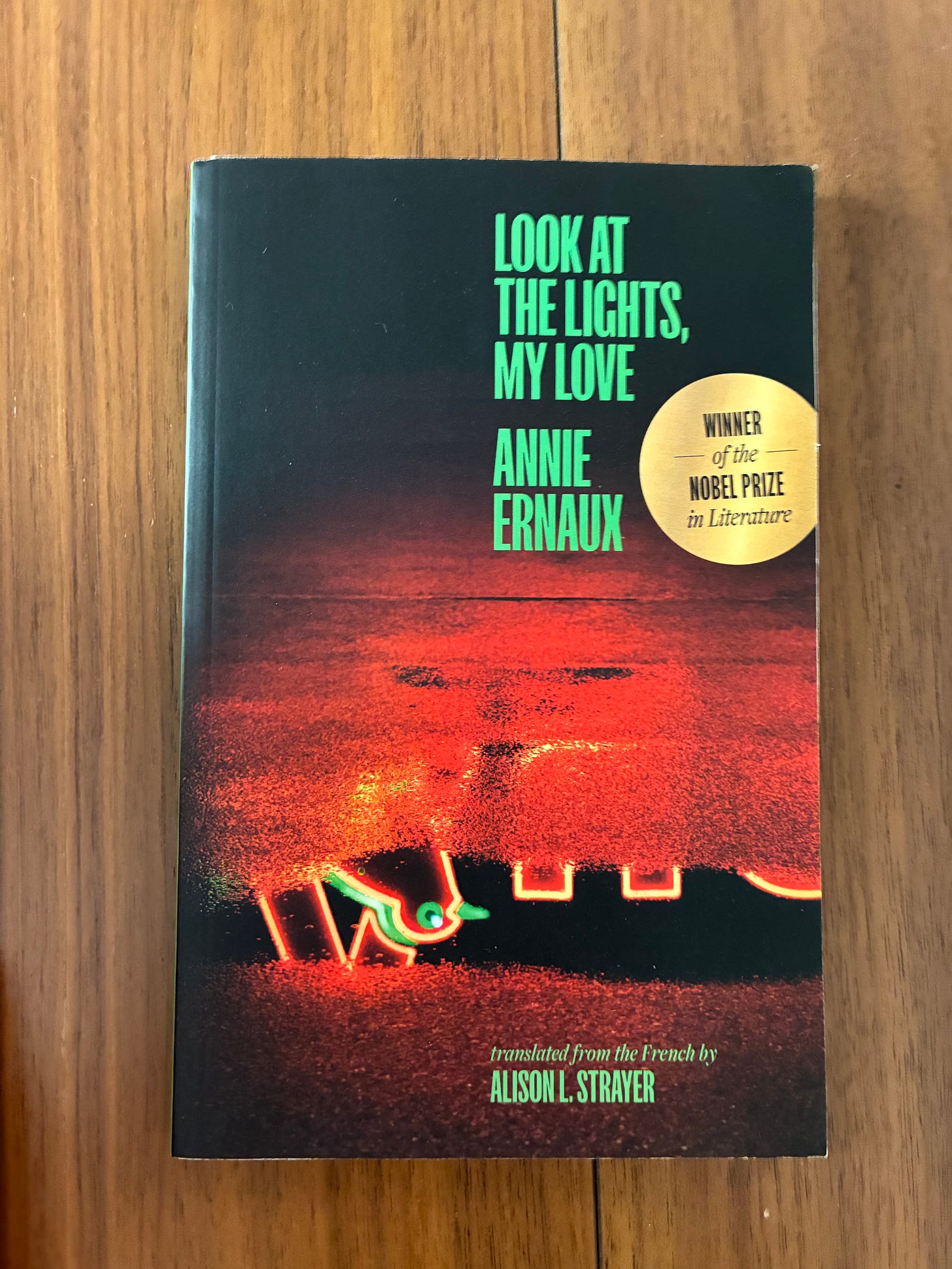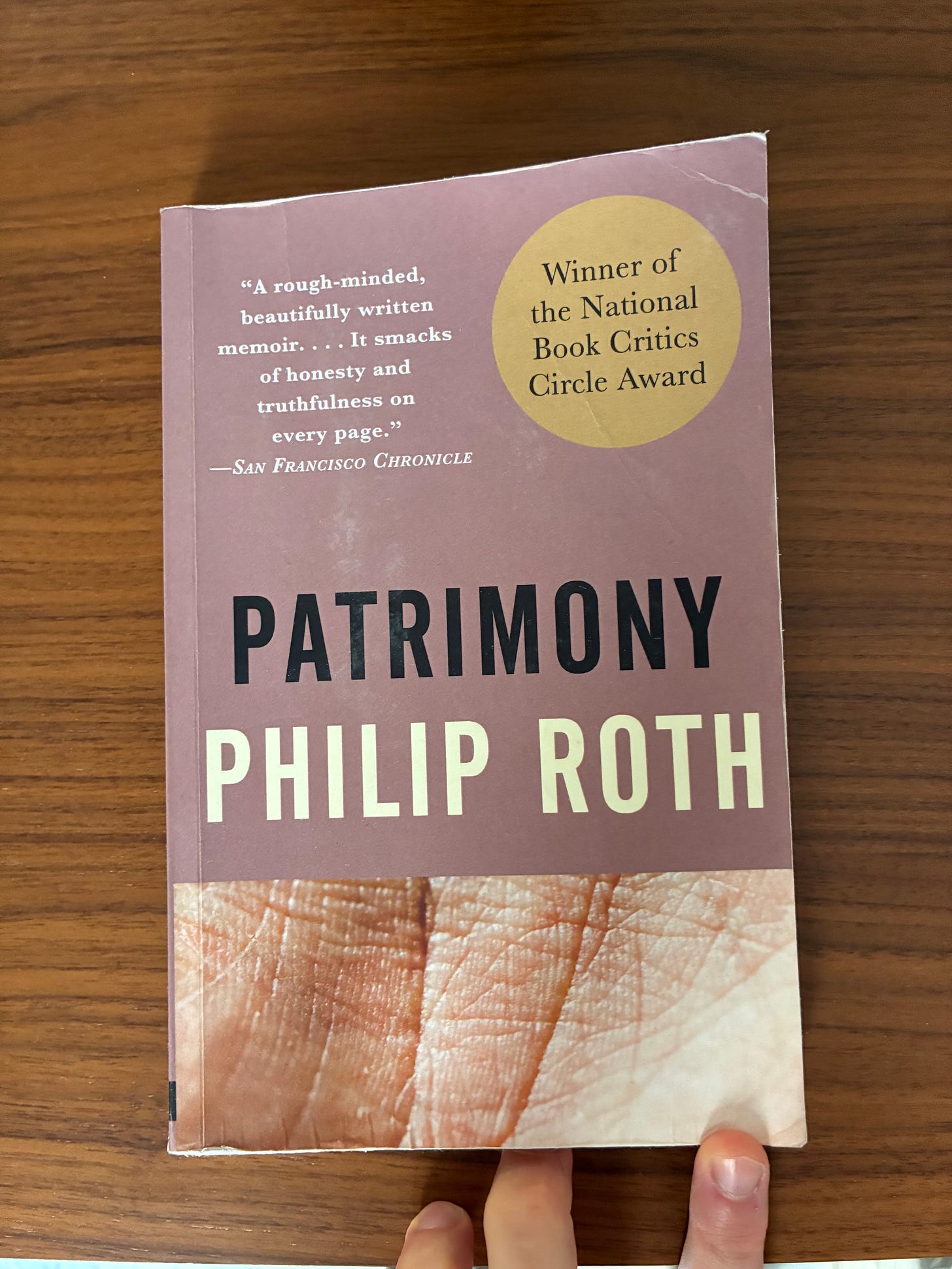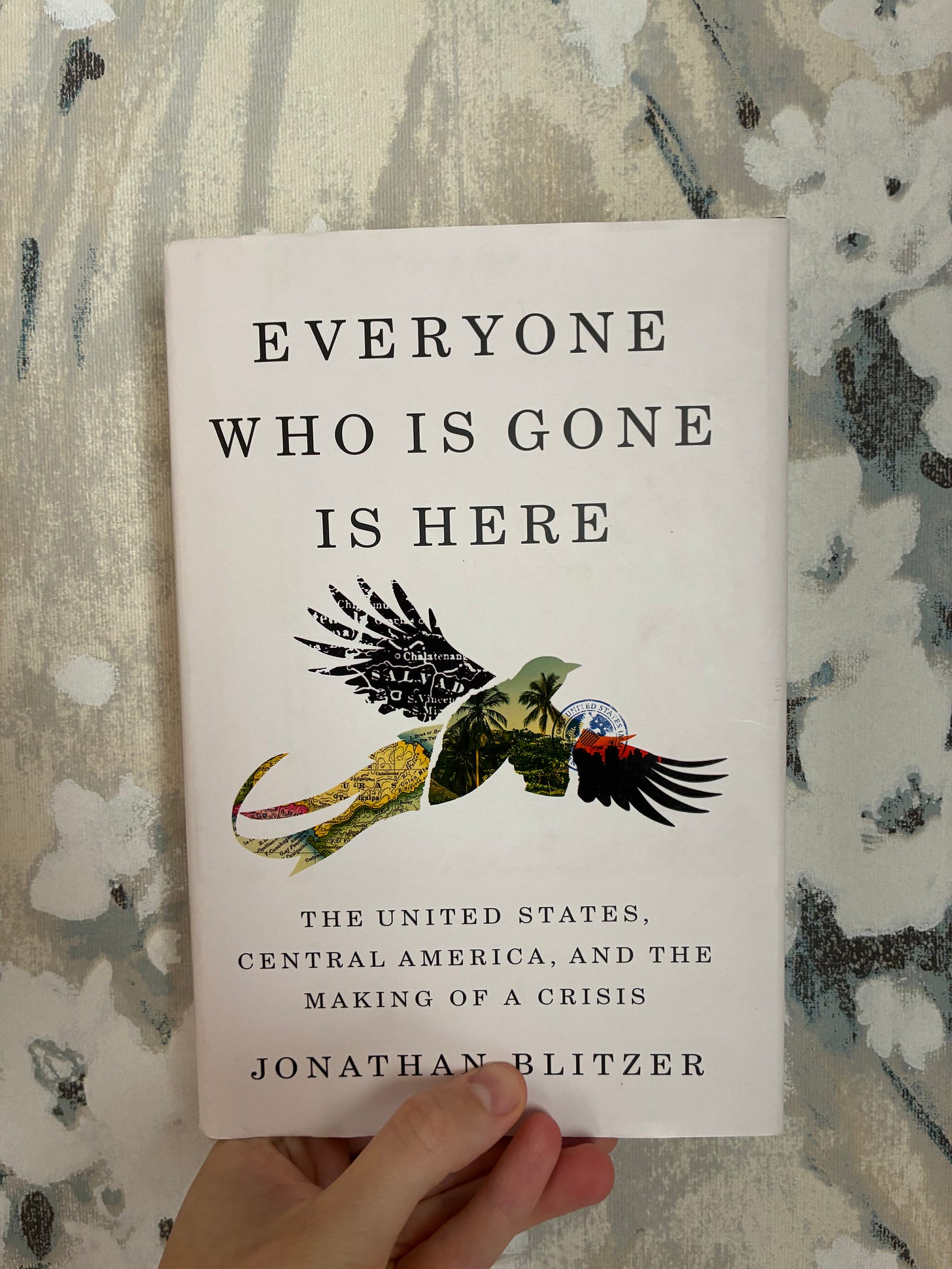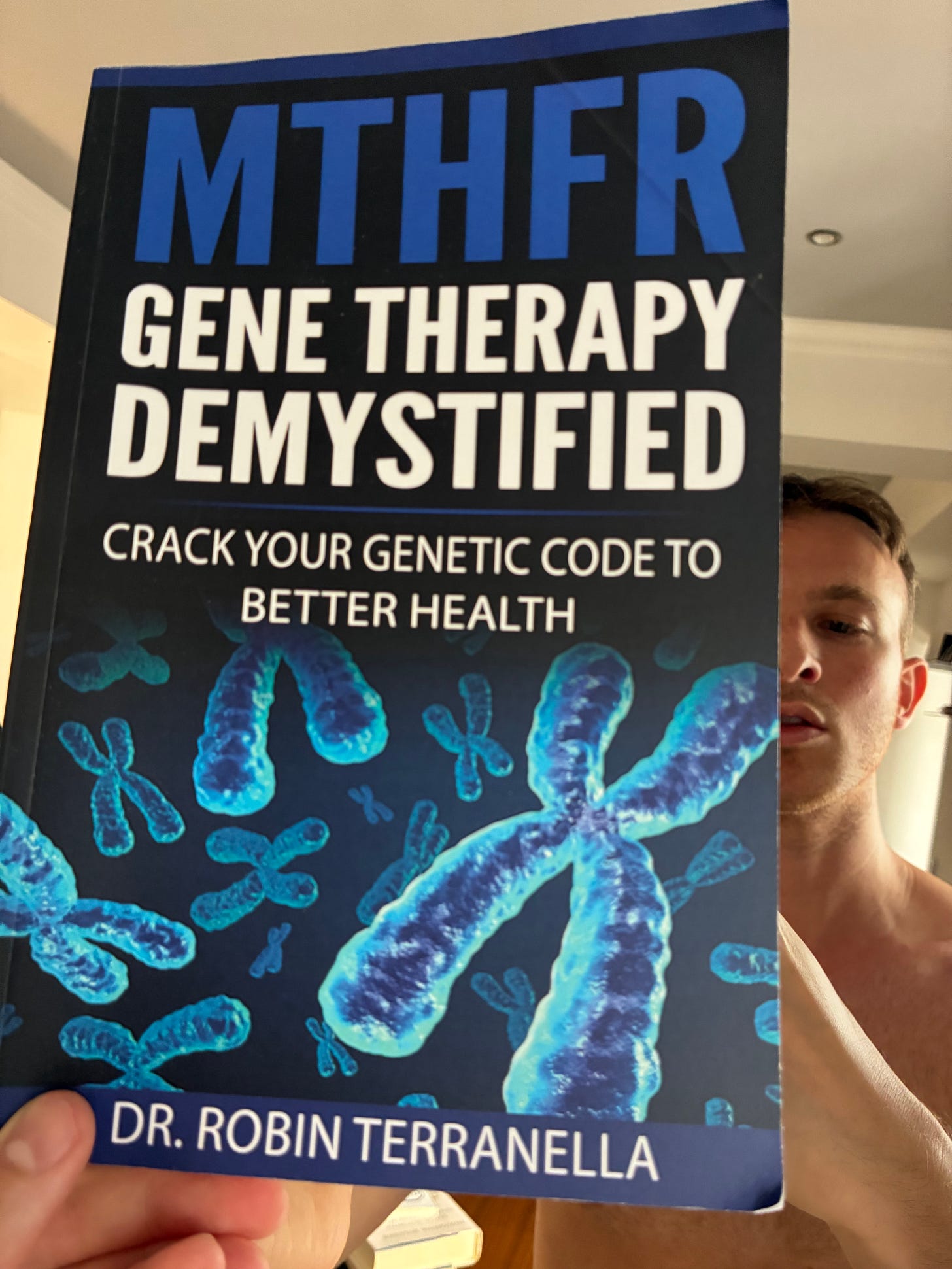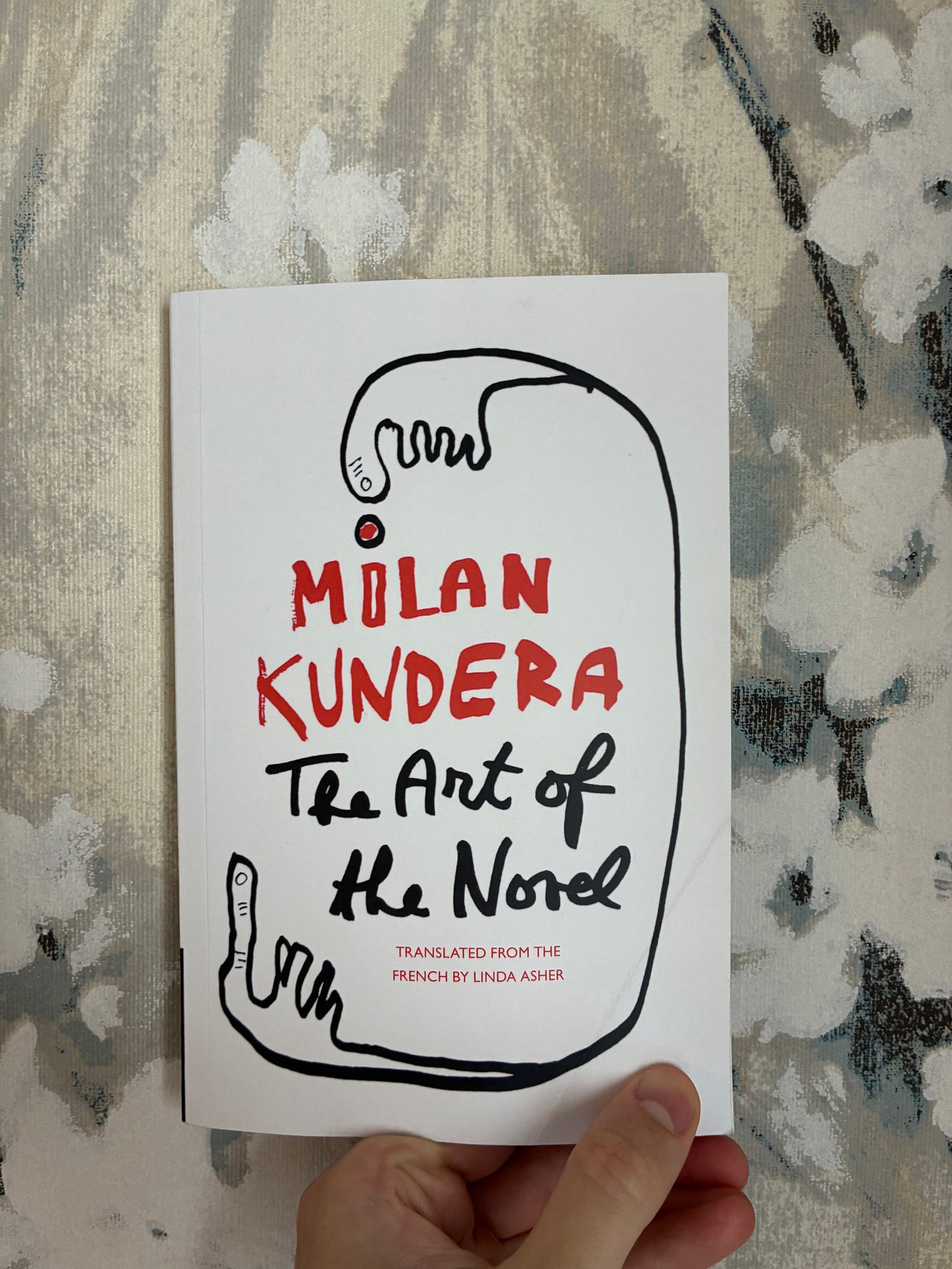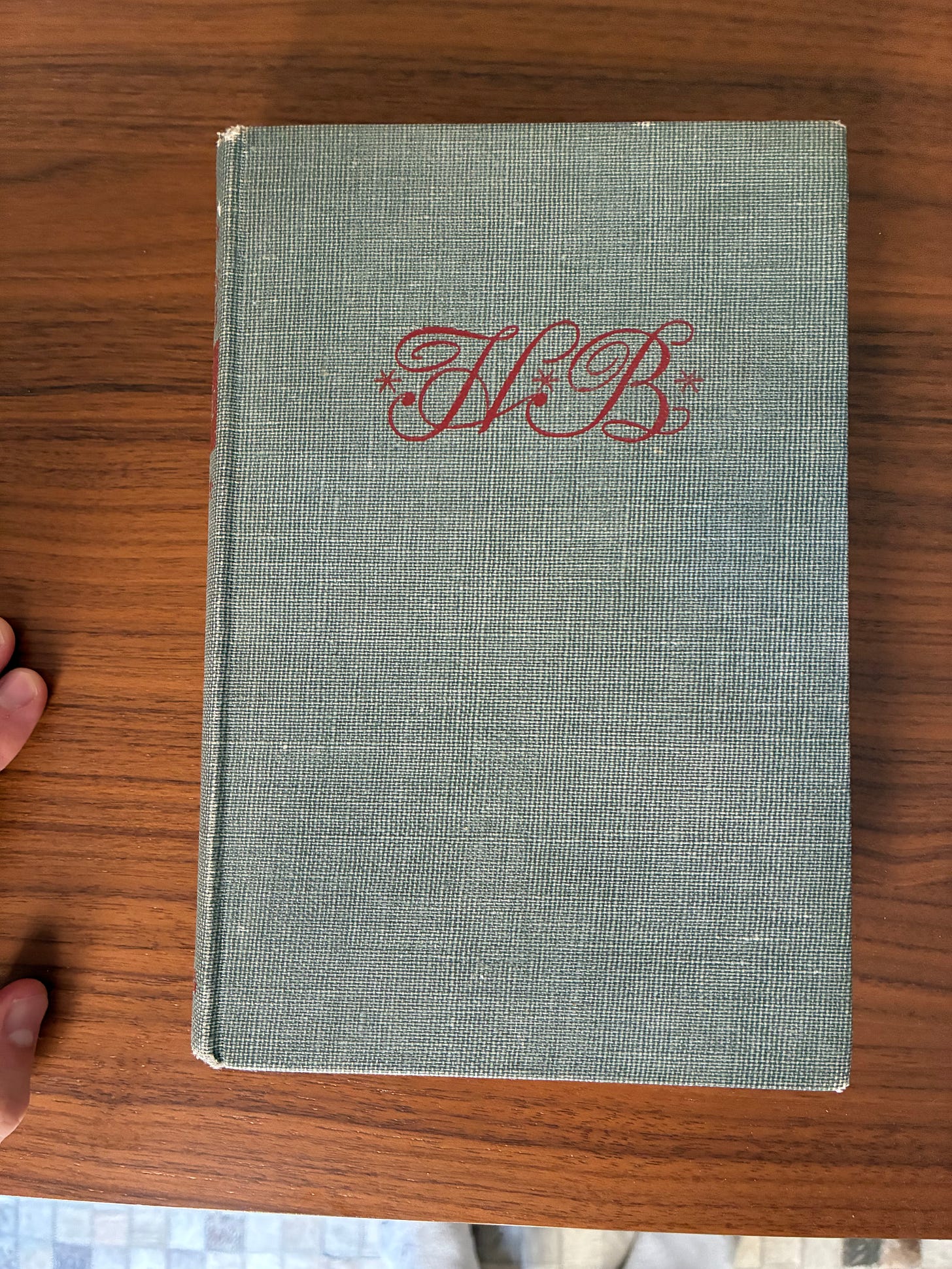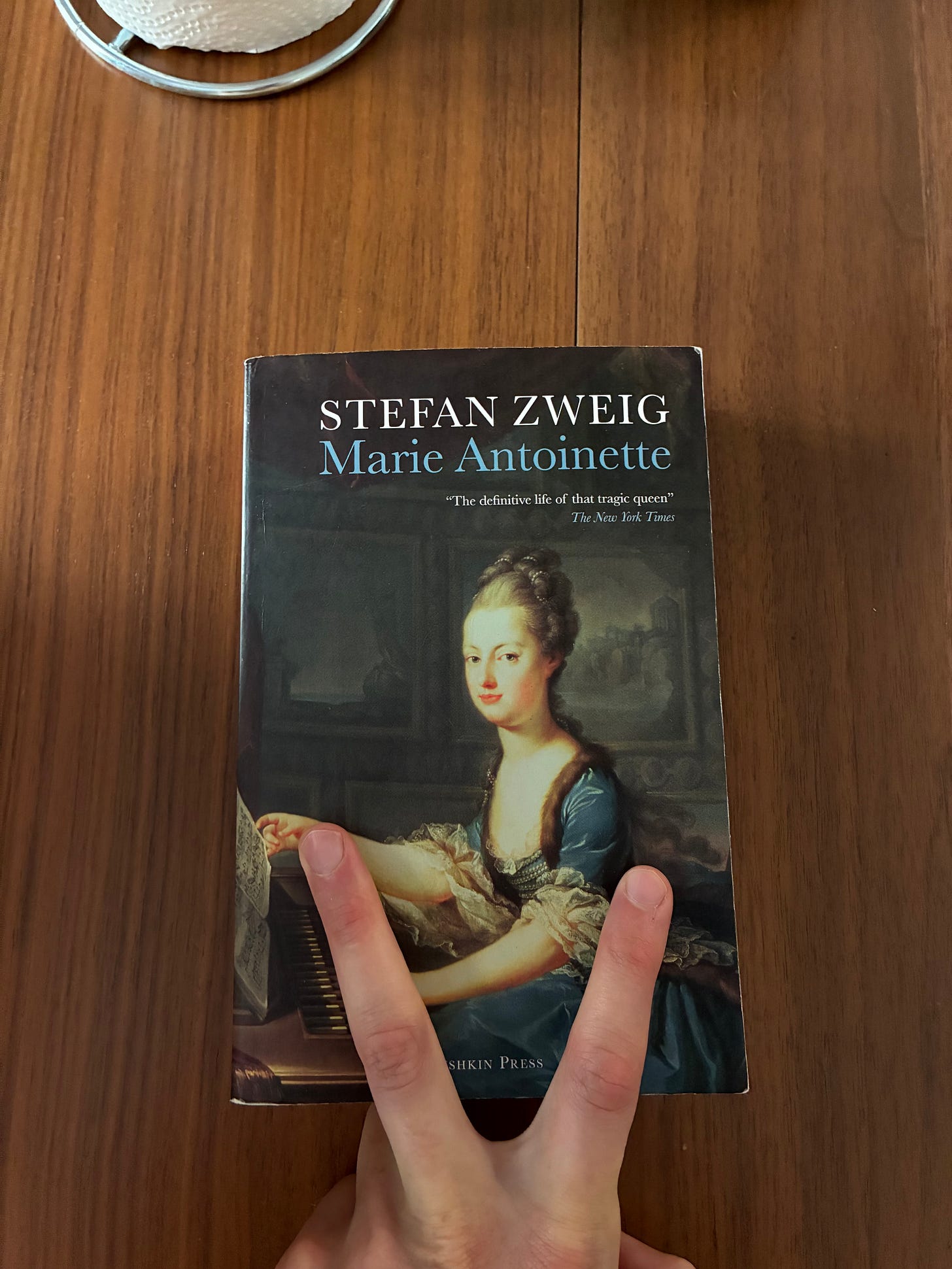What's on Gordon Glasgow's Bedside Table?
In another installment of our “bedside table” series, writer Gordon Glasgow shares some of the books he took as companions with him when he left NYC earlier this year. Check out Gordon’s Substack 12 Questions, where he has interviewed such esteemed writers as rayne fisher-quann, A. O. Scott, Jia Tolentino, and some upstart crow called Noah Kumin.
In case you missed it, check out the very same Noah Kumin, editor of the MRB, on sex, lies, and drugs in the world of competitive chess and Audrey Snow Matzke on a new novel by Olivia Kan-Sperling. The MRB has a new season of its podcasts coming. See all previous episodes here. You can read select previous bedside table series entries here:
And now I’ll turn it over to Gordon:
Aside from an exhausting couple of weeks right after my dog died, I’ve been away from New York, away from home, since January 9th, 2025, when I took a flight to Europe in order to finish a novel I’ve since, due to circumstances related to my dog’s death, been compelled to start from scratch; life is so unpredictable, it never ceases to surprise.
When I left the city on that cold, gloomy Thursday evening with my golden Labrador Retriever, Alfie, his last day ever in New York, in the United States of America, I thoroughly scanned my bookshelf on East Broadway to decide what I should take with me for the foreseeable future; who are the authors that should accompany me on this trip? This is a question everyone should ask before deciding what books they take with them when they travel, especially when they plan to travel for a while; authors are not merely a sense of intellectual entertainment or distraction, they seep into your unconscious and, often, refuse to leave—choose your literary companions wisely; they are the real people you’re traveling with, and, remember, if you travel with books you are never alone . . . even if you neglect these books to indulge in frivolous activities, sexual activities, social activities, alcoholic and/or narcotic activities, the books will be there, somber, angry, speaking among themselves, waiting for you to get home and finally give them attention. Jealous girlfriends, these books.
Through my travels, below are some of the books that have been on my various nightstands, nine in total (nightstands, not books), over this past year. Some of them left New York with me and Alfie on January 9th, while others were bought, gifted, or stolen along the way.
Look at the Lights, My Love by Annie Ernaux
When I’m stressed or in a particularly panicked, anxious mood, I like to relax myself by walking around grocery stores—even better in a foreign country; you can learn so much about a culture just by perusing a supermarket. I enjoy all kinds of grocery stores, everything from luxury chains to the fluorescently lit , budget-friendly options. The most fascinating, though, are the ones tailored at the lower-middle-class, that is to say, the majority of any given population.
Look at the Lights My Love, is a nonfiction work of anthropological first-person literature of the highest order. In a brief 81 pages, Ernaux keeps a diary of her experiences at a branch of Auchan, a French mega-store, in a working-class suburb of Paris. Whenever I want to gift someone a book, I tend, for whatever reason, to choose this one. I choose this one as a gift not only because it’s fantastic, but because I think it’s a good portrait of the kind of aesthetic, energy, and tone, I enjoy in literature; perhaps a way to let people know who I am, how I am. Ernaux’s somber tone of gloom, remorse, melancholy and longing has a power that’s unrivaled. This is my favorite book hers, even if some would merely deem it an essay. A good movie to accompany this book would be In the Aisles (2018) by Thomas Stuber.
Patrimony by Philip Roth
This is the first book I read after I left the U.S. in January. I think I started it on the plane, while Alfie was lightly asleep at my feet, drugged out beyond belief on doggy Xanax (this had nothing to do with his death). It was, oddly, my first Philip Roth (odd because I’m a Jew from NYC), and is a memoir about the life and death of his father, Herman.
My father, long sick with a degenerative disease called Lewy-Body Dementia, deserves one day a memoir of this caliber; either my eldest sister or I will write it (she’s a writer too, that bitch), or perhaps we’ll each write our own, then battle to see who wrote the better, more emotionally effective version; the whole scene will be grotesque and perverse, perhaps one worthy of another book in itself—any takers? I once devoted a ten thousand word piece to him, my father, but it wasn’t enough. Just as everything else, it’ll come in due time.
Though I’ve never given Patrimony to anyone as a gift, I would.
Everyone Who is Gone is Here by Jonathan Blitzer
Am I the only one who prematurely ejaculates at the thought of an excellent, long-form work of investigative journalism in the New Yorker? Am I the only one who thinks David Remnick is the sole individual responsible for a thriving, even-handed, journalistic culture, that he’s spawned multiple generations of talented writers that’ll stand the test of time? (Will Noah Kumin do the same?) I am a Remnick-head, through and through, and Jonathan Blitzer is one of those very talented journalists that the man from Hackensack, New Jersey has nurtured and brought to fruition. The 500-page long Everyone Who is Gone is Here details the U.S. immigration crisis from the end of the Vietnam War up through Joe Biden’s presidency in 2021. Blitzer follows the gut-wrenching stories of several different central-American migrants from El Salvador, Honduras, and Guatemala to illustrate the narrative. This book, of course, provides a good load of context to better understand the present crisis we’re enduring, all that’s led us to the dreadful place we find ourselves in today. Everyone Who is Gone is Here isn’t necessarily the kind of book I’d normally buy at a shop, but was given to me, or rather lent to me (which is why I’ll label this as stolen) by my brother-in-law Simon. I can remember so vividly the period of time when I was fully absorbed reading this book, all day, everyday, with so much focus and intent, during that painful month of April when I was sick and grieving my beloved Alfie. We all remember the weeks and months of our most rewarding reads; they serve as vivid, detailed chapters of our own lives. Just as an astute journalist such as Blitzer uses individual narratives to portray larger, socio-cultural phenomena, our favorite books, the most memorable novels, serve as vehicles to rediscover our own past.
MTHFR: Gene Therapy Demystified by Dr. Robin Terranella
I have not read this book. And still, it continues to travel along with me. It was recommended by a naturopath that my mother swears by, or rather, clings to as a coping mechanism for my dad’s illness; it’s a little bit of both. Dr. Terence Dulin (chiropractor) said I should take a look at this book because it would help “partially explain” his philosophy on health. Following my dog’s death, I developed intense stomach and chest pains that wouldn’t go away. No one could figure out quite what it was despite several visits to emergency rooms in foreign countries; yes, lots of it, surely, was a physical manifestation of grief, a heightened and overactive nervous system. I was desperate to get better, to finally feel somewhat like myself again, but not desperate enough to read a dry, self-help book written by an obscure, niche doctor. I can’t speak on whether or not it has merits or is helpful, because, like I said, I haven’t read it. I’m merely including it on this list to let you know that it’s been on my nightstand for quite some time. I should also let you know that when I returned to Madrid recently, on July 14th, 2025, the very place my dog died, to write about and come to terms with his sudden, shocking death, I began, after almost five months of hell, to finally feel better, to eat normal foods again without feeling like I was about to right away drop dead.
Bonnie (Hat Trick) by Emma Stern
This is a piece of ephemera, a postcard, specifically, of an Emma Stern painting from her 2024 solo exhibition at the Half gallery in the East Village. Stern gave this to me as a gift a few weeks before I published a profile of her as part of my 12 Questions series. We got into a month-long fight shortly after. Stern was upset, I suppose rightfully so, at how she was portrayed. It took a while for us to mend our friendship, but thank God we did; she’s one of the most emotionally insightful and intelligent friends I have. Initially this postcard hung in my apartment, but now I carry it with me to use as a bookmark, a very large bookmark.
During those two weeks I was back home in New York, suffering gut issues, I met Stern at the Metrograph to see a 70mm screening of Sophia Coppola’s The Virgin Suicides. We were supposed to meet for ice cream nearby before the movie, but Stern was running late, so I went to get ice cream alone. My stomach couldn’t handle it, and instead of sitting next to Stern enjoying the film’s uniquely opaque, moody aesthetic (Kirsten Dunst), I was in the ground floor bathroom of the Metrograph simultaneously vomiting and, well, spewing out a particularly awful form of diarrhea. I’ve always wanted to use Kirsten Dunst and diarrhea in the same sentence. Stern ran into one of her good friends at the theater, a famous British rapper, and while I was in the bathroom, he approached her in the middle of the movie to let her know that her friend is causing quite the scene in the “bafroom.” Stern might say this was karma for the profile I’d written, but I don’t agree; in my eyes the profile was flattering and this situation was karma for nothing. Sometimes bad things just happen.
The Art of the Novel by Milan Kundera
In December I finished reading The Unbearable Lightness of Being for the first time and vowed, not in vain, to read more Kundera. I love reading the nonfiction of the several masters of fiction, and I love it even more when the very best of writers write about writing; see also Murakami’s Novelist as Vocation. In May I ordered this book online from a used book store in North Carolina, excited as ever for its arrival, only to find a massive printing error in every single one of the book’s pages: all the words are accidentally printed in what can only be described as 2pt font, and the book can only possibly be read with a magnifying glass. To avoid looking like a private investigator while reading in public, I haven’t been able to begin this book, even though I’d really like to. Carrying this book from place to place serves as a reminder that I need to order a new copy, or download a version on my iPad. Perhaps I’ll give this copy as a gift to someone I don’t like. I see no purpose in keeping it long term.
Honoré de Balzac by Stefan Zweig
This book took me over a year to finish reading. I’m a slow reader, but rarely do I spend more than a month on one book. This biography, a genre of literature I don’t read too often, was so rich, so well-researched and thought-out, every page, every sentence, that I didn’t like the idea of reading it quickly; it sounds kind of gross, but I wanted to savor every page. Now that he understood himself he did not want to be misunderstood by others. That’s just one random sentence picked up from the book, and they’re all that good, all full of psychological complexity and weight. In April, in Los Angeles, during my grief and illness, my long period of convalescence, I decided one evening to just pick it up and power through the last one hundred and eighty pages. I was up for around thirty-six hours straight, taking in every sentence to the best of my ability. And it was extraordinary. And I now mourn the period I spent with this book, and, when I eventually get back to New York, it’ll be very sad indeed to put it back on my bookshelf. I should mention that I almost lost this book on two separate occasions: once at the theater, and another time at the post-office in Williamsburg. Both times, miraculously, it was still there when I went back to retrieve it. There is a God, and he loves literature, and he loves, even more, the writers who decide to devote their lives to it.
Marie Antoinette by Stefan Zweig
Zweig wrote several biographies, and I’m sure they’re all great. I’ll probably spend as much time with this one (590 pages) as I did with the last. I’d also like to mention that I’m not a dumb-dumb and did, while reading the Balzac biography, read many books in between . . . it’s just that one of the books was a magnum vintage Bordeaux, while the others, in comparison, were delicious though sometimes stale packets of candy, like Hasbro gummies, to be more specific.



